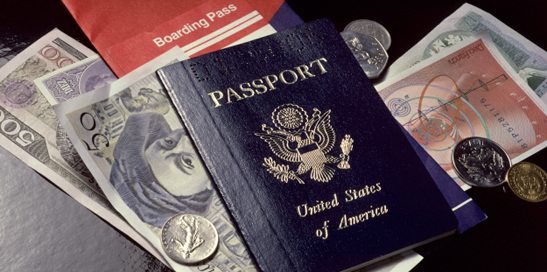“The World is a book, and those who do not travel read only a page.” — St. Augustine
Ahh traveling. Who doesn’t love getting away and visiting new places? I know I do! I’ve done a bit of traveling, (though have many more plans in the future). Even with my novice travel experience I’ve picked up some pointers along the way. Hope these help when planning your next trip. Happy travels!
-
Get a passport!
Even if you don’t have any immediate travel plans, you never know when you’ll need it.
-
Plan ahead
While I’m a huge fan of spontaneity, some things are better not left to decide on a whim. Lodging and transportation are two things that I always try to have pinned down. You don’t want to be in a foreign country, with no money and nowhere to sleep. There are many travel options nowadays and planning ahead assures that you’ll get the best bang for your buck. I opted to travel throughout Europe using trains but if I had to do it again I’d like to plan my route further ahead of time and try to use some of the many low-cost airlines that fly to cities throughout Europe.
-
Research
This goes hand in hand with planning ahead. If you do your research and know where to go and what to do, your travel time will be spent actually doing and enjoying these things, instead of wasting time figuring out what to do.
That said however, be open to change. Maybe you’ll meet some interesting people on the train and hang with them for a day? Or you stumble upon a cool art exhibit. This is the beauty of travel, soak it in. -
Lodging
Look into cheap lodging options such as hostels or couch surfing (couchsurfing.org). Another great option is a site called airbnb.com. It works like a hotel (you pick your city and your price range) the only difference is you’ll be staying in someone’s home. You can opt for a private room or splurge on the whole place. Of course, if cost isn’t an issue then go for what your heart desires.
-
Exchange Rates
Be aware of current exchange rates and avoid places like airports and train stations to do the exchange (their rates are almost always not as good as exchange places that are a bit further away.) Sometimes the difference is minimal but at times it can save you a pretty penny. You can do some online research ahead of time to see where a good exchange place is located.
-
Money
Open a checking account at a bank with international locations (For example HSBC, which has locations worldwide.) This will save you from all the extra fees you incur when using your credit or debit card abroad. These rules vary from bank to bank though so you can also ask your local bank if they have an international partnership with a bank overseas. Either way, it’s definitely worth looking into especially for longer trips.
-
Pack light!
This is an obvious one, but if you’re like me it’s easier said than done. For my trip this summer I opted for a large camping-style backpack over traditional luggage because I know from experience that lugging one of those huge bags around can be torture. Elevators are not always an option, and it’s much easier to hoof it up a flight of stairs with a large backpack than dragging your luggage.
-
Live It Up
Last but not least, be adventurous and of course take lots and lots of photos! I usually take a few memory cards to store all my photos and worry about uploading them all when I get home. Be open to new experiences, try new foods, and most importantly have fun!
“The proper function of man is to live, not to exist. I shall not waste my days in trying to prolong them. I shall use my time” —Jack London




